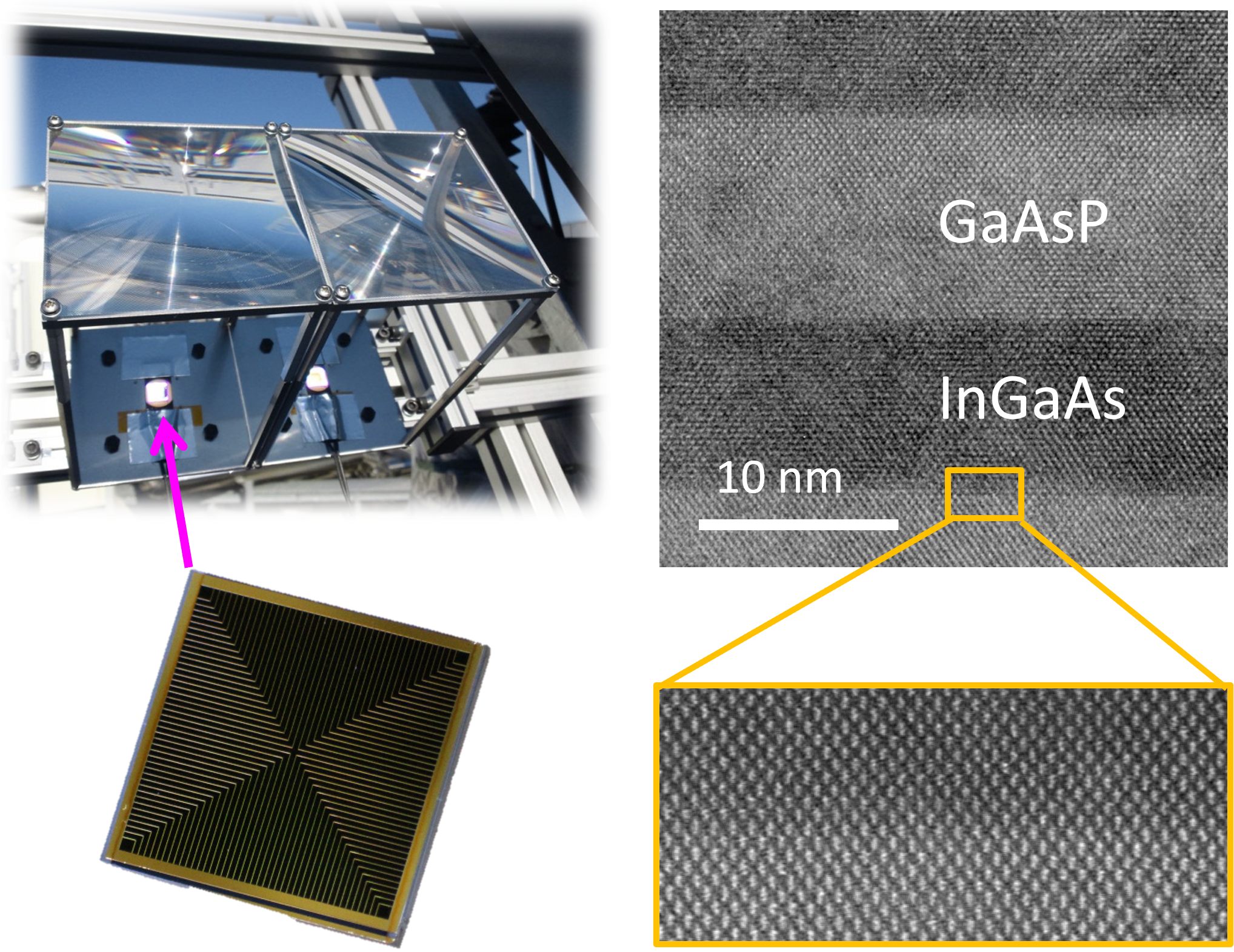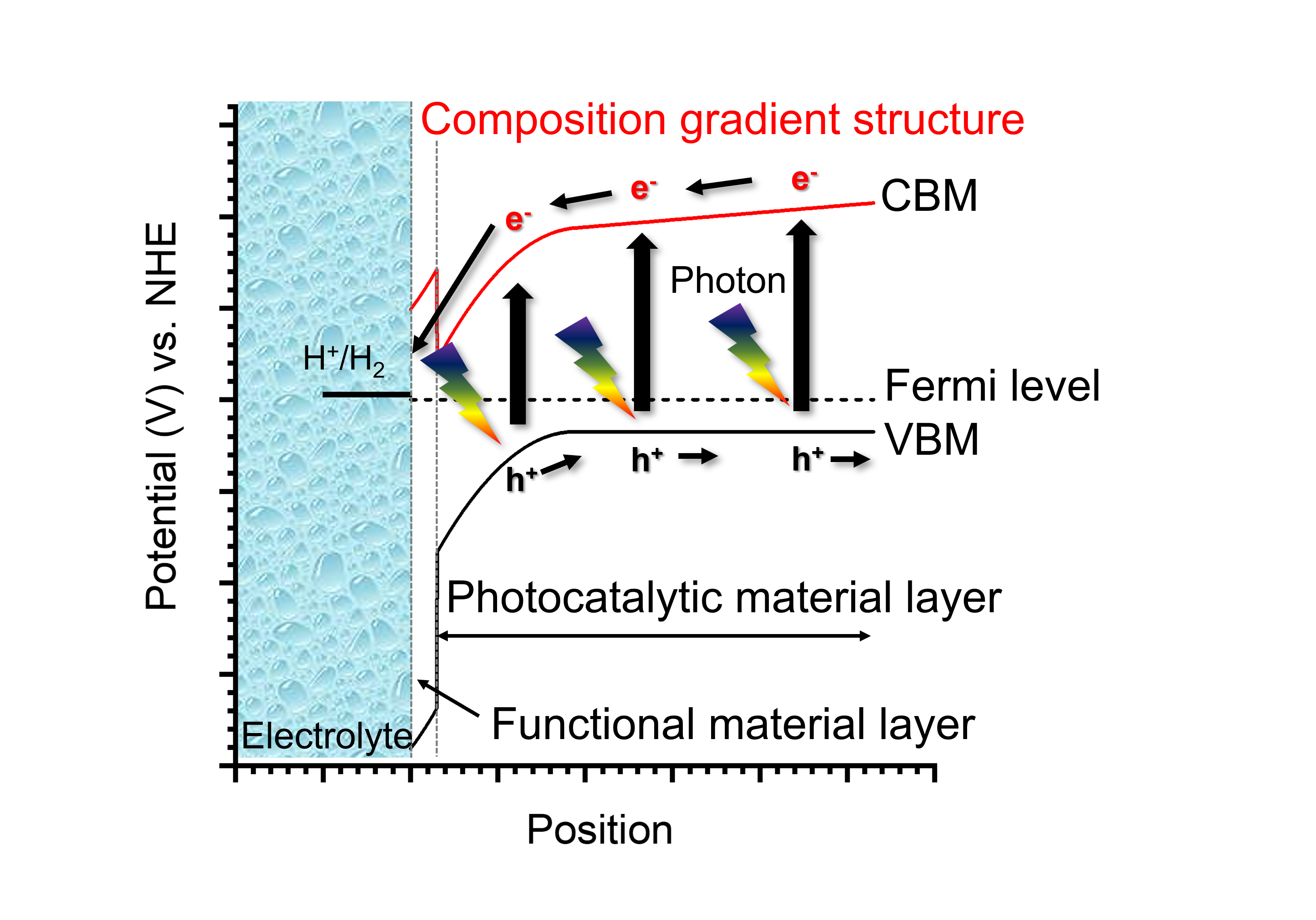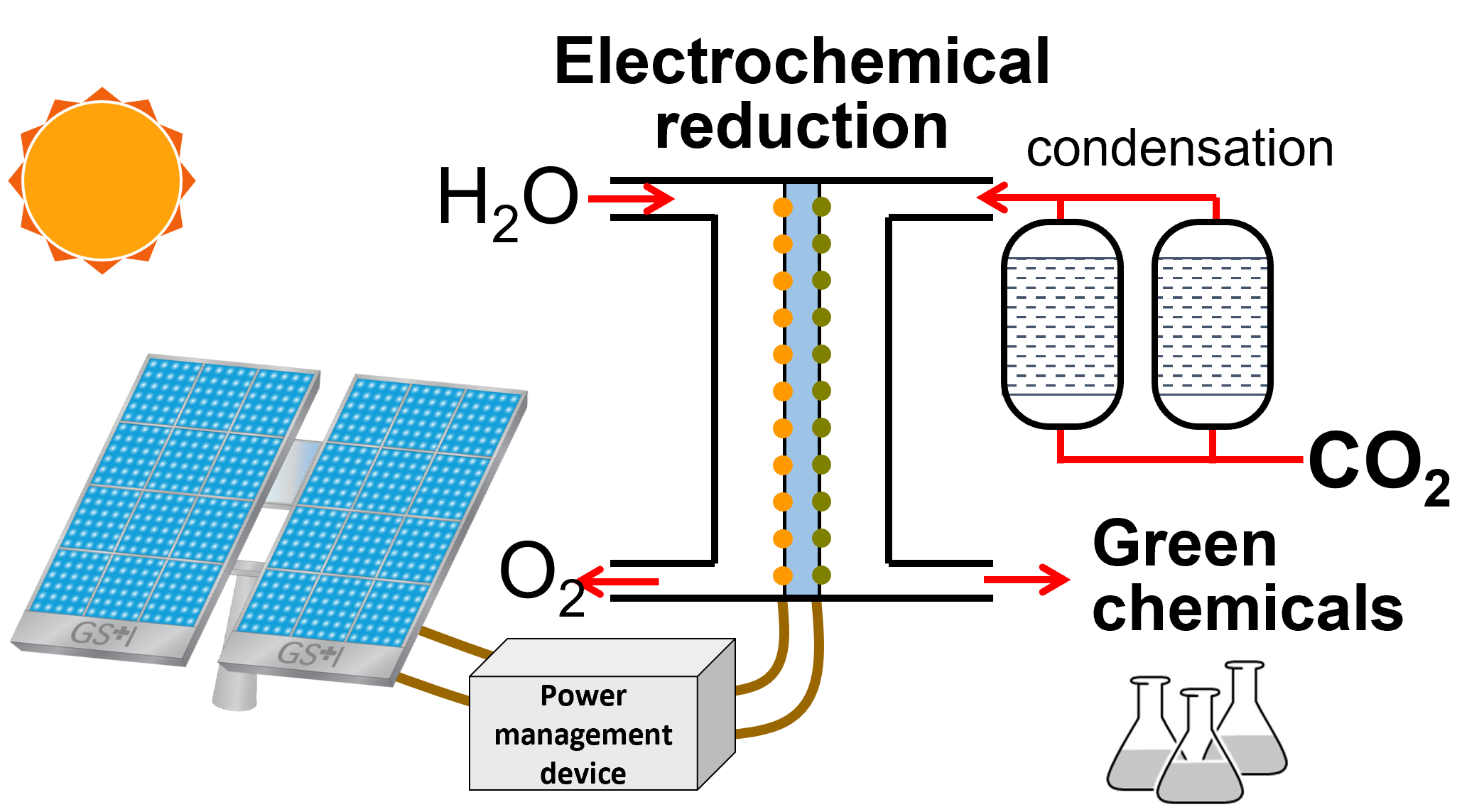
Komaba Campus
Graduate SchoolGraduate School of Engineering - Electrical Engineering and Information Systems
DepartmentDepartment of Electrical and Electronic Engineering
Nano Physics & Device Technology Field
Nanomaterials engineering
Electronic materials/Electric materials
Semiconductor
Photonics
Crystal engineering
Renewable Energy
Smart Grid
Green Transformation (GX)
Materials / devices / systems to realize carbon neutrality.
Our interests spread from basic research on renewable energy to social implementation. The most exciting frontiers exist at the interfaces such as the ones between electricity and chemistry, research and society.
Research field 1
High-efficiency photovoltaics for green hydrogen production

To achieve carbon neutrality, CO2-free hydrogen is indispensable. Disruptive installation of photovoltaic is expected as a power source to produce green hydrogen in the regions with high irradiance. For this purpose, there is a growing expectation for high efficiency solar cells, far superior to conventional silicon solar cells. The key to achieving high efficiency lies in semiconductor nanocrystal technology. We are conducting research and development rooted in material chemistry and physics, from crystal growth to system evaluation of solar cells.
Research field 2
Physics of photocatalysts for producing hydrogen from sunlight and water

Photocatalysis is expected to be the ultimate technology for lowcost solar hydrogen production. In order to improve the efficiency of photocatalysts, it is essential to investigate the band structure of the interface between the semiconductor, which is responsible for the generation of photovoltaic power, and water, and to design a structure that can learn from high-efficiency solar cells. We are simultaneously developing new analytical methods and exploring highly efficient photocatalysts.
Research field 3
A system to produce green chemicals from CO2

In order to supply fuels that cannot be covered by CO2-free hydrogen, it is expected to realize a system to produce green chemicals by reducing the recovered CO2 with renewable energy. We are developing systems that take advantage of the benefits of electrochemistry, such as the development of a reaction field that can efficiently produce the desired hydrocarbons from CO2, utilizing our knowledge of fuel cells and water electrolyzers.